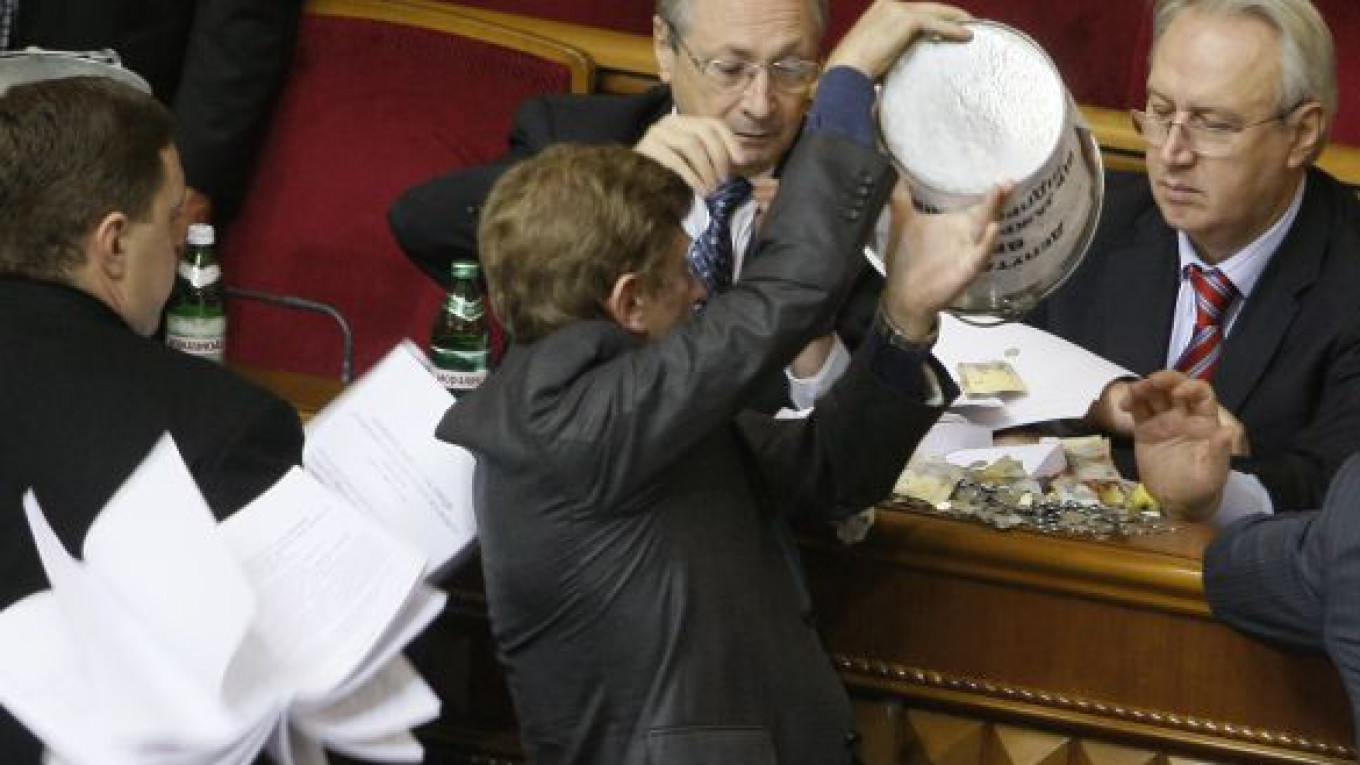KIEV — President Viktor Yanukovych said Friday that Ukraine would not be able to make ends meet without the government’s tax reform that has sparked public protests.
Earlier in the week, Ukraine’s parliament passed a tax code drafted by the government. Once Yanukovych signs the bill into law, taxes will be raised for hundreds of thousands of entrepreneurs such as street vendors, freelance taxi drivers and hairdressers.
Critics have accused the government of giving tax breaks to its wealthy industrialist backers at the expense of the middle class, and small business owners have staged street protests with some urging Yanukovych to veto the law.
On Friday, Yanukovych said his office needed to study the document but insisted that tax hikes were necessary.
“If there are some shortcomings … we will try to fix them, but the state needs a tax code,” he told reporters from three news agencies in an interview. “It is not just a means of collecting taxes. It is a tool to protect the rights of the people and investors.”
Yanukovych said the cash-strapped government must pull the economy “out of the shadow.” Under its $15 billion International Monetary Fund deal, Ukraine must cut its budget deficit to 3.5 percent of gross domestic product in 2011 from this year’s 5.5 percent.
“Some people stand to lose, one must admit this. … About 300,000 will have to switch to stricter reporting and taxation,” Yanukovych said. “This is inconvenient and unpleasant. [But] all countries have gone through this.”
Yanukovych said the government needed to spend a “massive sum” of 60 billion hryvnas (about $7.5 billion) just to subsidize the pension fund.
The current law lets millions of small businesses make no pension fund contributions and disclose very little information to the tax authorities.
“Where will pension fund contributions come from if wages are not reported?” Yanukovych said. “The government is not content with this.”
Protests against the reform have become the biggest display of public discontent since Yanukovych’s election in February.
“We believe the protests this week may have a significant impact on [Yanukovych’s ally, Prime Minister Mykola] Azarov and the way the government handles the economic reform,” Citi analyst Luis Costa said in a note Friday.
“The main potential implication here is the possibility of a deceleration on the IMF-driven reform agenda, in order to save some of Yanukovych’s political capital,” which is still large, he wrote.
Costa said Yanukovych’s Party of the Regions could become reluctant to enact some of measures scheduled for 2011, such as raising the retirement age for women to 60 years from 55 and increasing the prices of household gas.
A Message from The Moscow Times:
Dear readers,
We are facing unprecedented challenges. Russia's Prosecutor General's Office has designated The Moscow Times as an "undesirable" organization, criminalizing our work and putting our staff at risk of prosecution. This follows our earlier unjust labeling as a "foreign agent."
These actions are direct attempts to silence independent journalism in Russia. The authorities claim our work "discredits the decisions of the Russian leadership." We see things differently: we strive to provide accurate, unbiased reporting on Russia.
We, the journalists of The Moscow Times, refuse to be silenced. But to continue our work, we need your help.
Your support, no matter how small, makes a world of difference. If you can, please support us monthly starting from just $2. It's quick to set up, and every contribution makes a significant impact.
By supporting The Moscow Times, you're defending open, independent journalism in the face of repression. Thank you for standing with us.
Remind me later.






